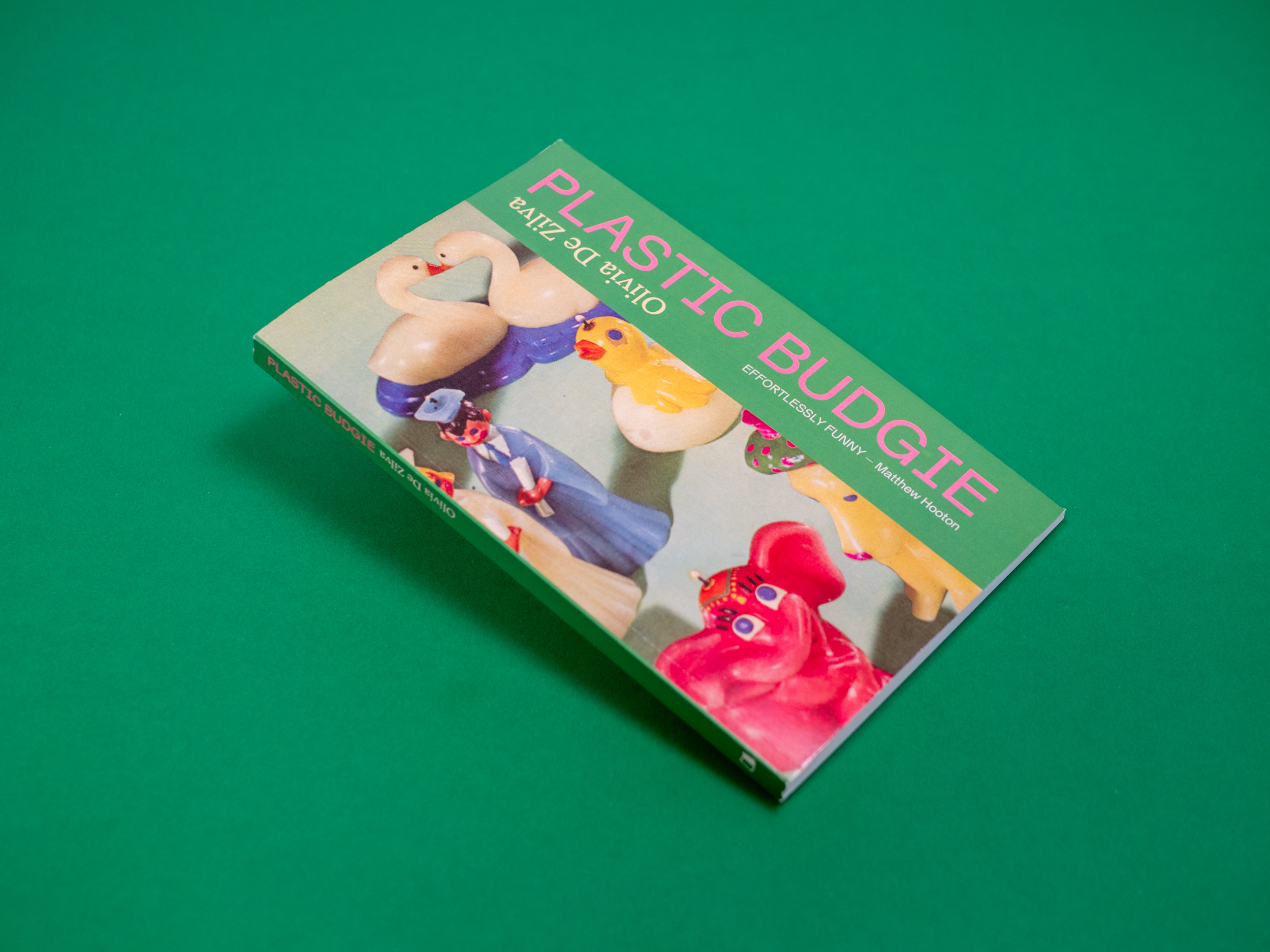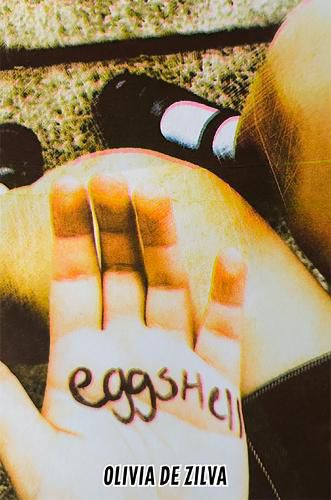‘I was haunting myself’: Olivia De Zilva revisits Adelaide adolescence in Plastic Budgie
Local author Olivia De Zilva will make her literary debut twice in 2025, with a twin hit of coming-of-age vignettes designed to provoke, charm and ultimately unsettle.

Releasing a debut novel is a major milestone for any aspiring author, but Olivia De Zilva is blazing onto the literary scene with the release of two works in a single year.
The consecutive launch of De Zilva’s novel Plastic Budgie through newly established local publisher Pink Shorts Press, and then the novella Eggshell just a few months later, was far from a planned strategy for the Adelaide-based writer and InReview contributor.
“Pink Shorts Press approached me about Plastic Budgie in early 2024, and I thought that would be my only project,” De Zilva tells InReview.
“But I’d just finished my Masters at the University of Queensland, and I had Eggshell (the novella) I’d written for that. So I submitted it to the Australian Association of Writing Programs Novella Prize, and I just happened to win.”
Publishing deadlines aside, it’s no surprise that De Zilva’s books came in pairs; both works delight in unsettling readers by playing with doppelgängers, mirrors, twins and hauntings.
“And I’m a Gemini as well,” she laughs. “Plastic Budgie is a plastic version of my life. And Eggshell is the plastic version of Plastic Budgie.”
You might like
Her first book to hit the shelves, Plastic Budgie, is a debut work quite unlike any other; a memoir-meets-fiction that kicks and scratches at both categories. Using humour and pop-culture references as a delivery system for the exploration of grief, trauma and the experience of growing up Asian Australian, De Zilva is open about using deadpan humour as a coping mechanism.
“That’s the way I learned to deal with things. That’s the voice I was given. I’m never going to be overly emotional. That’s just not my style. To be honest, I’m quite emotionally repressed; you deal with trauma as a child, then how do you de-compartmentalise that as an adult?”

The book’s episodic structure holds a mirror to how we construct memories, as De Zilva recounts her childhood experience of losing the ability to speak as a trauma response. Along the way, references to sitcoms, gossip magazines and turn of the century pop-culture nostalgia spark like firecrackers throughout the work.
“I use humour in the book as an avatar to talk again. Reading magazines like New Idea and Who Weekly really supported me in finding my voice. That witty yet gossipy style was something I really gravitated towards.”
Under the surface layer of humour and pop-culture references, Plastic Budgie has serious literary heft; structured as a series of vignettes from De Zilva’s childhood and adolescence in Adelaide’s southern suburbs, the protagonist of Plastic Budgie is both the author and her doppelgänger – an uncanny observer, who leaves the reader unsure where the border between memoir and fiction lies. Like a shadowbox of memories, the chapters are episodic and not perfectly chronological.
Subscribe for updates
“It’s a bit of a Frankenstein’s monster. Which I find really interesting. I wasn’t writing an autobiography – I’m not interesting enough to have an autobiography,” De Zilva laughs.
“I wanted to do something that was real to the human experience, that showed how memories can be tacked on. They can be postmarked, yet they can feel real at the same time. I didn’t want to make something that was fully fleshed because that’s not how my life has been. That’s not what anyone’s experience of life has been.”
In the final third of Plastic Budgie, there’s a shift in structure and tone, taking the exploration of how we form and relate memories in literature to an exciting new level. De Zilva is once again fascinated by the concept of doubling, and playing with the idea of examining herself from the outside as a detached observer.
“I felt like I was haunting myself, if that makes sense. As both a child and an adult. Everything felt unreliable, and that’s the nature of memory. When you look back at yourself as an adult, it can be a kind of Babushka doll. You reveal all these layers, and they become more and more uncanny.

“That’s another reason there’s lots of pop culture references to doubles and doppelgängers. Like in Interstellar where he can see himself from another dimension; I love that ‘trippiness’, and I want that in my work,” De Zilva said.
While the Young Adult novella Eggshell is an entirely distinct work, and tonally quite different, there are some parallels between the two, particularly in their wry observations of class and culture and defiance of genre classification.
“Eggshell was a fiction project, so there wasn’t room to be experimental in that sense.’ De Zilva explains. “I set out to write a YA fiction novella, but within that, I was provoking labels; I was provoking the YA label, asking does it really fit? Or do publishers do that for sales and marketing?
“And then I had the broader question of exploring Asian Australian identity in contemporary Australian publishing. What does ‘Asian Australian’ even mean? So, I was really exploring labels in Eggshell.”
Both Plastic Budgie and Eggshell launch De Zilva as an exciting new voice in Australian literature. The unsentimental bravery of these works with their biting humour and insight into identity and trauma is remarkable, yet they also impress on a deeper level with their defiant and inventive rejection of genre boundaries.
Plastic Budgie by Olivia De Zilva (Pink Shorts Press) is out now. Eggshell (Spineless Wonders) is due in November 2025.
Free to share
This article may be shared online or in print under a Creative Commons licence

